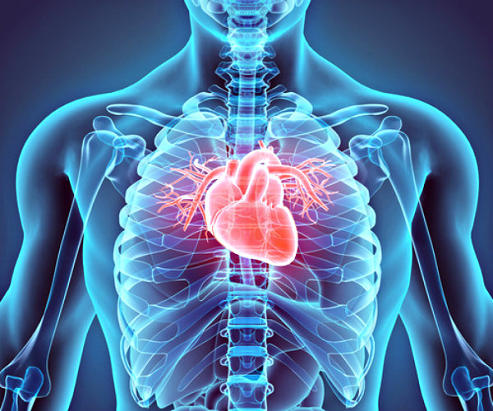A lack of awareness among consumers and the careless attitude of a large section of physicians have turned many lifesaving “antibiotic” drugs into silent killers.
Unfortunately, antibiotic’s resistance has been rising dangerously to high levels globally; constituting one of the biggest threats to global health, food security, and development.
A growing number of infections such as pneumonia, tuberculosis (TB), gonorrhea, and Salmonellosis are becoming harder to treat as the antibiotics used in their treatment are becoming less effective, thus resulting in longer hospital stays, higher medical costs, and increased mortality.
Worldwide, the World Health Organisation (WHO) estimates that antimicrobial resistance kills more than 700,000 people every year, a disturbing number that could rise to 10 million by 2050.
A situation analysis on antimicrobial use and resistance in Nigeria released by the federal ministries of health, agriculture and environment in 2017 has shown high resistance rates of 70% – 100% to some antibiotics in certain states of the country.
In a country where infectious diseases are a major cause of morbidity and mortality, especially among children, this figure is of great concern.
For instance, studies on samples from 120 children under five years of age from South-South Nigeria reported 100% resistance to penicillin and cotrimoxazole antibiotics.
In Nigeria today, due to the grossly inadequate number of healthcare personnel and facilities across the country, patent medicine vendors (PMVs) are a main source of medicine for acute conditions.
They are usually the first source of care of between 8% and 55% of illnesses occurring among children under 5 years old and adults respectively.
In Nigeria today, due to the grossly inadequate number of healthcare personnel and facilities across the country, patent medicine vendors (PMVs) are a main source of medicine for acute conditions.
They are usually the first point of care of between 8% and 55% of illnesses occurring among children under 5 years old and adults respectively.

PMVs are not required to have formal training in medicine or pharmacy in Nigeria and they are only permitted to sell a limited number of pre-packaged, over-the-counter medicines and medical products; the law prohibits them from selling prescription medications (including antibiotics) or conducting invasive medical procedures (such as giving injections).
Sadly, the PMV practices are largely unsupervised and unregulated in Nigeria; thus, they often engage in appropriate drug dispensing practices and perform illegal invasive medical procedures.
Anyone in Nigeria as it stands today can visit the PPMVs, hawkers, small shopkeepers who provide on-the- spot diagnosis and treat anything with buying just a few tablets instead of the full course, which is usually not enough to cure an infection but enough to allow bacteria to mutate and gain resistance.
If these people who neither have a pharmacy degree nor a medical training by any means, can be taking advantage of the ignorance of others and doing their unethical businesses without let or hindrance, then this signifies state failure, institutional malfunction or breakdown in regulatory and legal frameworks.
The 2019 theme for the World Antibiotic Awareness Week, “handle antibiotics with care”, is emphasizing the need to use antibiotics safely and responsibly across sectors, from agricultural and livestock production to public health, and to mitigate the impacts of antimicrobial pollution contaminating water and soil.
The WHO Regional Director for Africa, Dr Matshidiso Moeti in his message to mark the World Antibiotic Awareness Week, warned that Antimicrobial Resistance (ARM), by humans globally, could cause up to 10million deaths annually by 2050 if left unchecked.
Speaking during a media round-table with journalists in Abuja to mark the World Antibiotic Awareness week, Dr. Moeti who was represented by the WHO officer in charge to Nigeria, Dr Clement Peters said that AMR endangers health security and progress towards Universal Health Coverage (UHC), by threatening to reverse medical advances of the twentieth century.
‘’AMR endangers health security and our progress towards universal health coverage, by threatening to reverse medical advances of the twentieth century.
It reduces our ability to treat diseases such as pneumonia, tuberculosis, gonorrhoea and cancer. AMR also threatens our ability to conduct surgeries and to care for premature babies.
‘’We are seeing high resistance to common pathogens such as 98% fluoroquinolone-resistant Escherichia coli, meaning there are limited treatment options for people that get this infection.
Key challenges in combating AMR include: weak regulatory systems facilitating proliferation of substandard and falsified medicines; limited implementation of standards for clean water, sanitation and hygiene, and to prevent and control infections; and a lack of reliable data.
‘’WHO and partners are working with countries to address these challenges by implementing “One Health” national action plans.
These plans bring together different sectors and disciplines to build stronger regulatory systems, to improve surveillance, and to develop policies to promote appropriate antibiotic use among humans, and in livestock and agriculture.
‘’In the African Region, nine of 47 countries now have functioning multi-sectoral working groups on AMR and 19 countries have enrolled in the Global AMR Surveillance System (GLASS).
Twenty-four countries have legislation on the prescription and sale of antimicrobials for human use and six have national monitoring systems for consumption and rational use of antimicrobials in human health.
Together, we need to accelerate action to reduce the increasing prevalence of drug-resistant infections’’, she added.
She urged governments to draw a national action plan that would promote AMR governance, facilitate multi-sectoral collaboration, and increase access to clean water and sanitation.
Kuje Area Council launches 10-days Measles, Meningitis ‘A’ vaccination
‘’Patients should only use antibiotics prescribed by a certified health professional.
‘’Health workers should always follow infection prevention and control practices, and only prescribe and dispense antibiotics when they are truly needed.
‘’The private sector can invest in research and development of new antibiotics.
‘’The agricultural industry can reduce the use of antibiotics in livestock farming.
‘’Working together, and taking a holistic approach to safeguarding antibiotics, will help to ensure that we can all look forward to a healthier future’’.
‘’Twenty-four countries have legislations on the prescription and sale of antimicrobials for human use, and six have national monitoring systems for consumption and rational use of antimicrobials in human health. Together, we need to accelerate action to reduce the increasing prevalence of drug-resistant infections.
‘’There is an increasing global challenge of antimicrobial resistance, which hitherto has made some antibiotics ineffective for the treatment of infectious diseases, they were specifically designed to fight.
Statistics have shown that the use of antibiotics save millions of lives each year by fighting off bacterial infections. They have been the backbone of medicine, yet many of us take them for granted.
Achieving Universal Health Coverage (UHC) won’t be possible without paying close attention to this most pressing global health threat.
‘’The world indeed has moved from a period of inevitable deaths from infections and undiscovered medication for strange infections to self-inflicted deaths from human greed.
‘’The consequences of antibiotics abuse help to accelerate the level and spread of resistant bacteria. Increasing availability of antibiotics has also accelerated this alarming downside: The drugs losing their efficacy to kill the microbes they were created to conquer. Hard-wired to survive, many bacteria have evolved to outsmart the medications’’, Moeti added.








Leave a Comment
You must be logged in to post a comment.